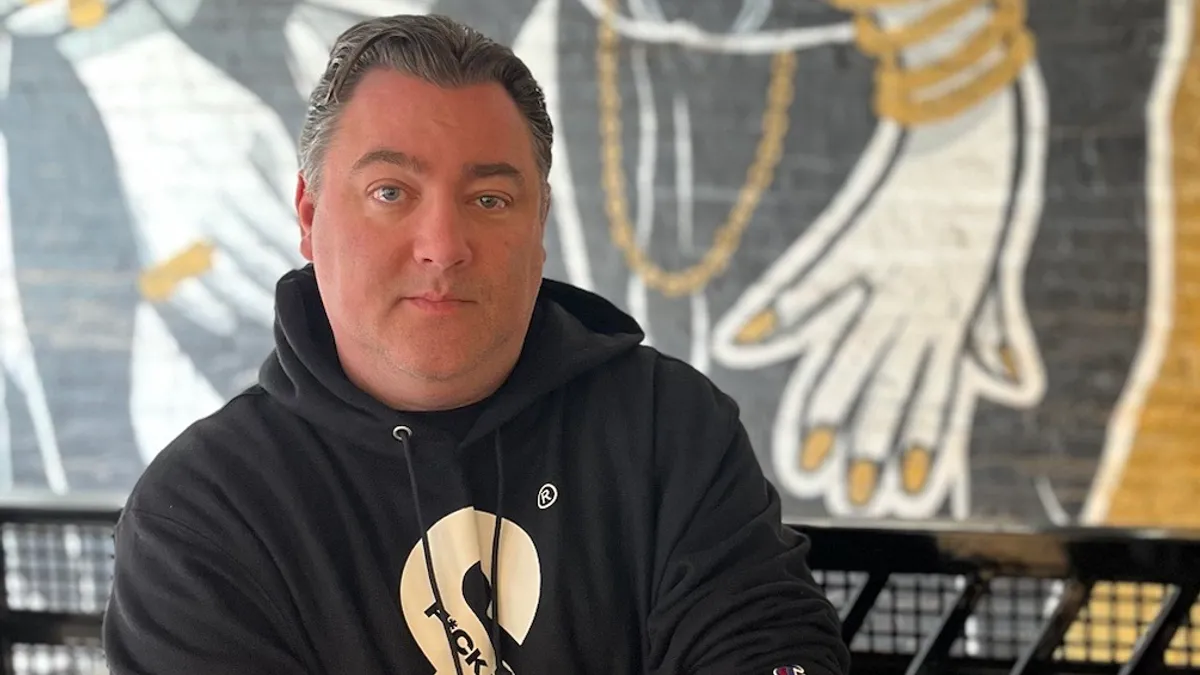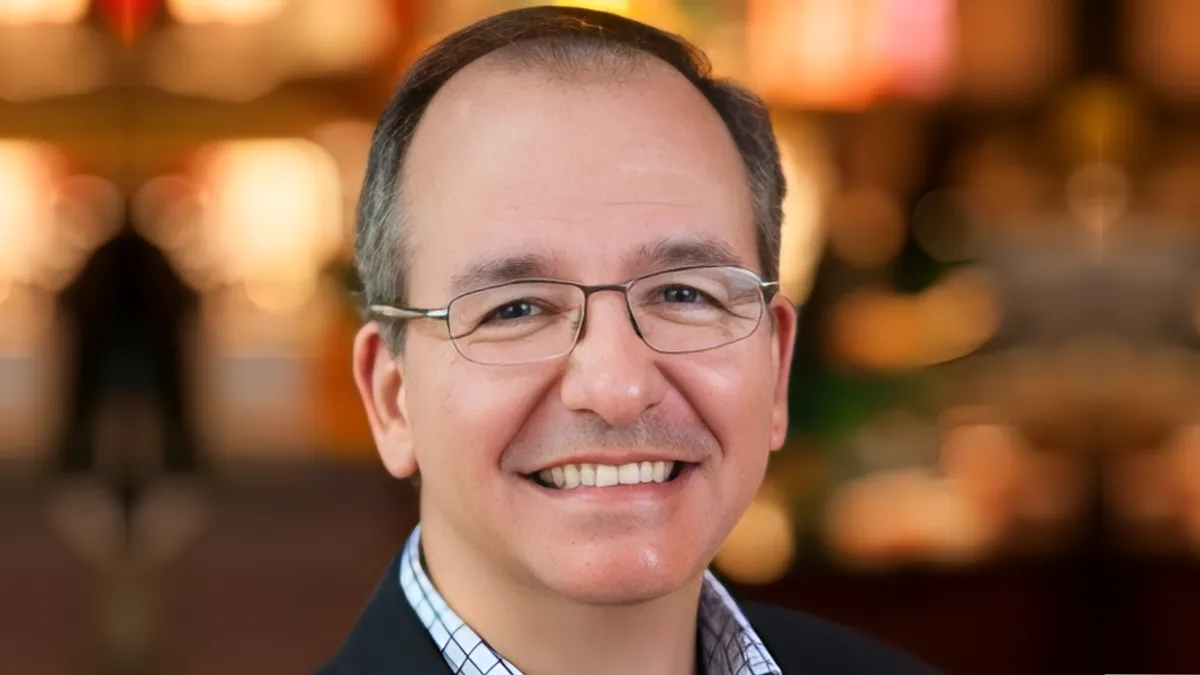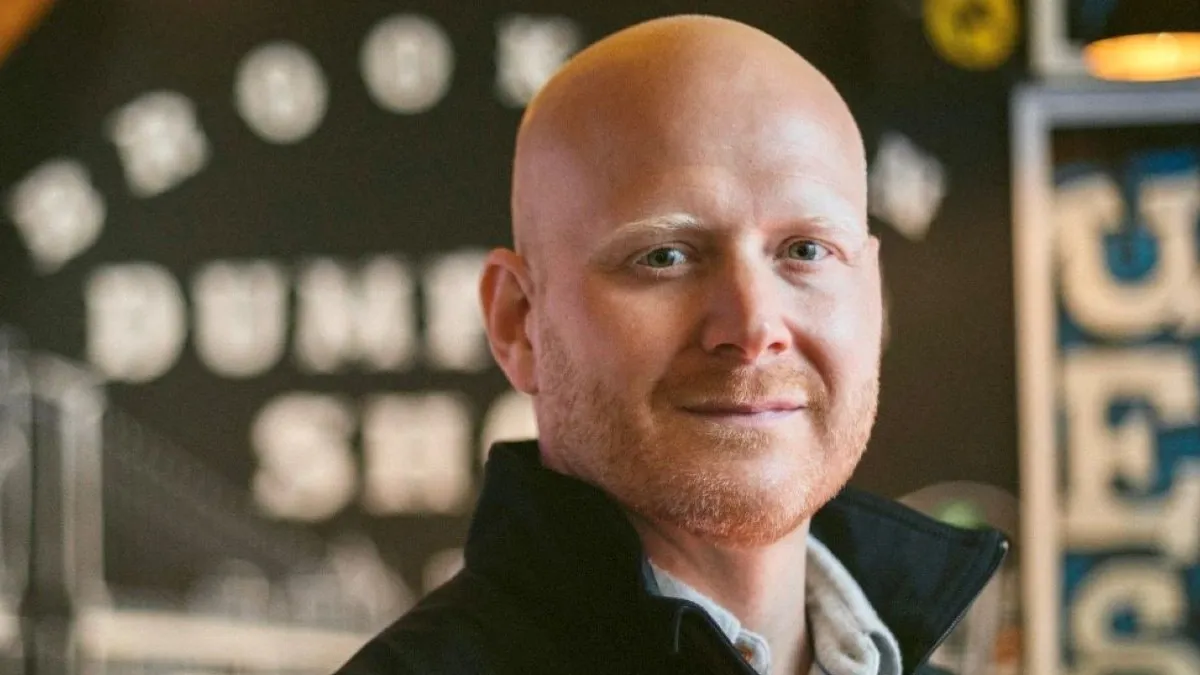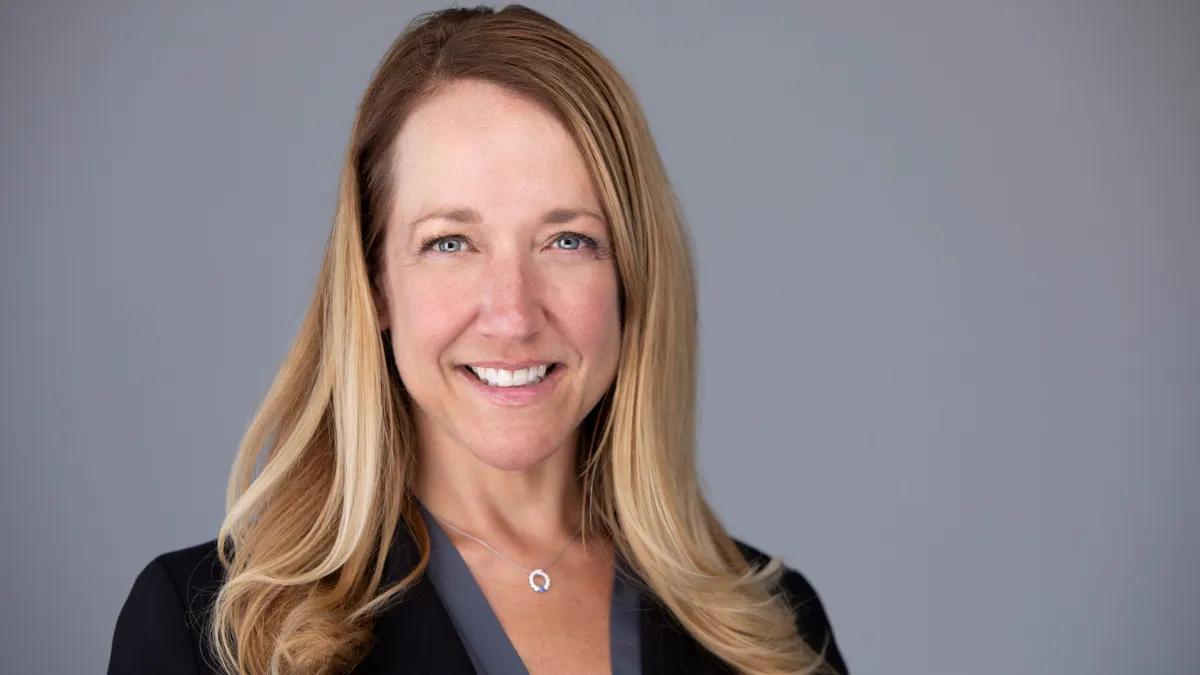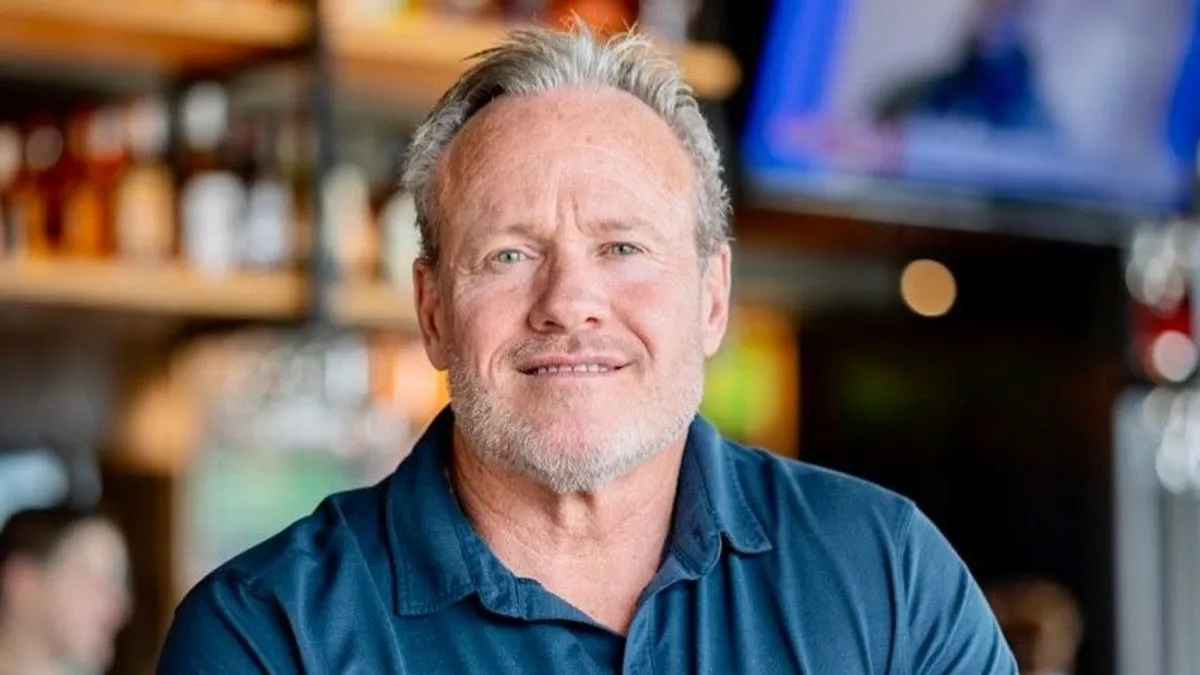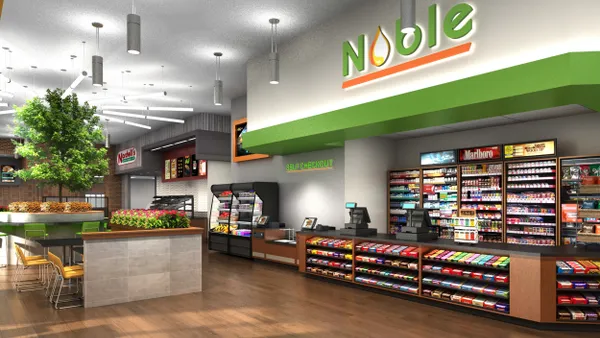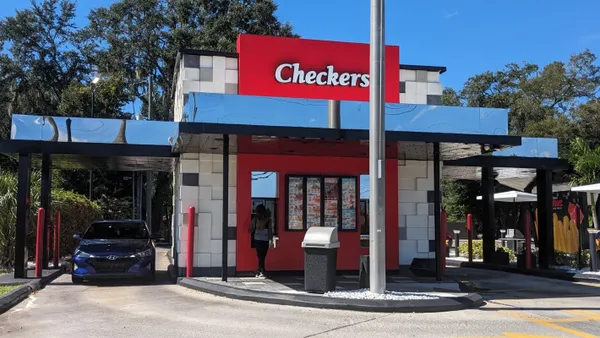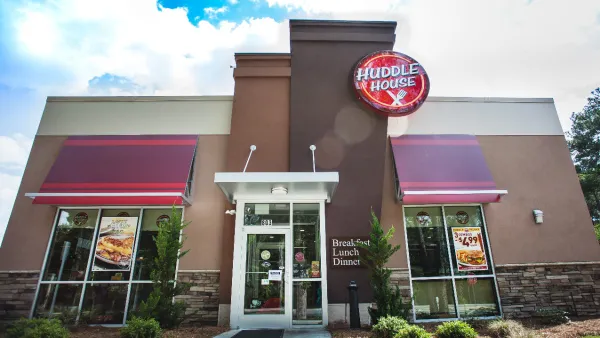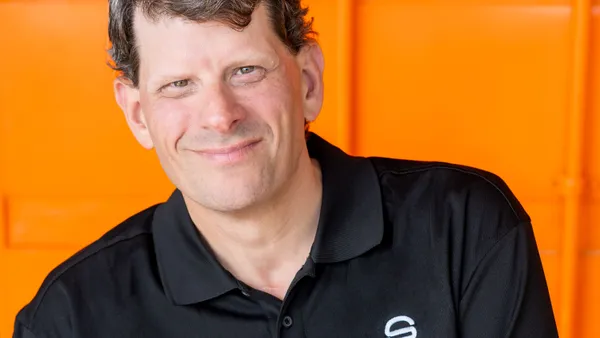Editor’s note: This is the next in an occasional series highlighting recently hired C-suite executives.
When Mike Burns joined Washington-based &pizza as CEO in November, he quickly realized the emerging pizza chain had lost its way. It became a generic fast casual pizza chain that needed a refresh.
From technology to culture and customer experience, Burns moved to bring the company back to its roots. The chain is already seeing a positive sales shift.
“We had this beautiful brand that our founder Michael Lastoria built. He wanted to have a handful of stores and they caught fire. They built all these stores in D.C, and we expanded some of the markets,” Burns said in an interview. Once COVID-19 hit, growth stopped.
Under his leadership, &pizza brought back fan favorites like Moonstruck Pizza, which has mushroom truffle sauce, grilled onions, mushrooms and topped with goat cheese. This pie was taken off the menu due to operational difficulties, but was retooled and brought back earlier this year.
He also overhauled how the company managed its 40 units in Washington, its biggest market. Instead of one district manager overseeing the operation, &pizza turned to a vice president of operations and five employees who were promoted to district manager positions to run the Washington market.
The company is focused on growth with plans to start franchising in new markets while growing corporate units in its home territory. Burns said the chain is on a path that could double its unit count.
Burns spoke with Restaurant Dive about his first seven months at &pizza, what strategies he deployed, how the company will approach franchising and what the future holds, especially from a growth standpoint.
This article was edited for clarity, style and brevity.
RESTAURANT DIVE: What are the biggest challenges &pizza faces this year? And what are your strategies to overcome them?
MIKE BURNS: The strategy that &pizza had when it started 12 years ago was the right strategy. Get food in people’s mouths in a cool environment with cool people and support the communities that are around it.
The ampersand stands for unity and building community.
Somewhere along the way — probably a lot to do with COVID — that stopped. We just turned into a regular fast-casual pizza restaurant company that was just trying to survive.
I level set the organization and put more people in the field and operations where the rubber meets the road. We’ve got people who run their restaurants who live in the markets that they work in. Same thing with the district leaders.
We just went back to the roots. We turned our music back up loud like it used to be. We let our employees be whoever they want. Obviously, they have to be in uniform. But if they want to wear their hats backwards, or have a neck tattoo or have green hair — we’re about just being different and letting people be who they want to be. I think the customers in our restaurants see that.
We became a tech-centric company. When the IT department outweighs the operations department, then you’re a tech company, not a restaurant company. We came in and reset that. We partnered with Toast, Olo and Thanx for our loyalty, website and app platform. We feel like, let the experts do what they do and let them run our technology piece, especially for ordering integration, website and app functionality and the loyalty program. And let us sell pizza.
We also reset our loyalty program. We partnered with a creative agency out of Charlotte, North Carolina, called BooneOakley, who helped us create the Dead President’s Club. You’ve got George Washington with a grill, Abraham Lincoln with a pink Mohawk, Ben Franklin with a neck tattoo — we know he wasn’t a president, but we don’t care. We feel like that program is a little bit edgier.
What lessons have you learned from previous roles that you brought into your current position?
The biggest lesson I’ve learned is to move fast. If you have a plan in place, or in your mind that this is how it’s supposed to work, don’t drag your feet. Don’t wait six months and say, “I wish I did that, or I wish I did this.” Come in, be forceful in your decision. Be competent in what your game plan is, and just execute it.
We made a lot of decisions, hard decisions, the first three days I was here with personnel. We made some decisions with the tech stack. That wasn’t something easy. That’s something that the company had spent a lot of money building, but I didn’t feel like it moved the brand forward.
I think it’s better to just rip the Band-Aid off and go really hard at first. You can always take your foot off the gas pedal, but I think the organization needs to see the speed of the leader, the speed of the team. They’ll go as fast as I go.
Whatever mistakes I made yesterday, it doesn’t matter. Let’s not make them today. Be forceful in your decisions. It’s been a lot of fun, a lot of hard work, like drinking through a fire hose, but it's been a ton of forward moving progress so far.
What excites you about your company’s trajectory for the next three years?
We’re really excited to franchise for the first time towards the end of this summer. We’re in the process of finalizing our franchise disclosure document. We really believe that we can keep D.C. as our core market and then franchise in some of these other markets surrounding D.C. and adjacent to D.C. We feel that this thing could catch fire and be up and down the East Coast and eventually spread all the way to the Southwest.
We feel like this brand is cool enough to be in every college town across America. I just think it’s going to grow pretty fast. In the next three years, I can see our store count doubling, if not more.
We’ve already been talking to potential franchisees about the business. We think we’ll have a handful of franchisees signed in multistore deals by the end of the year. And those restaurants will start to open next year.
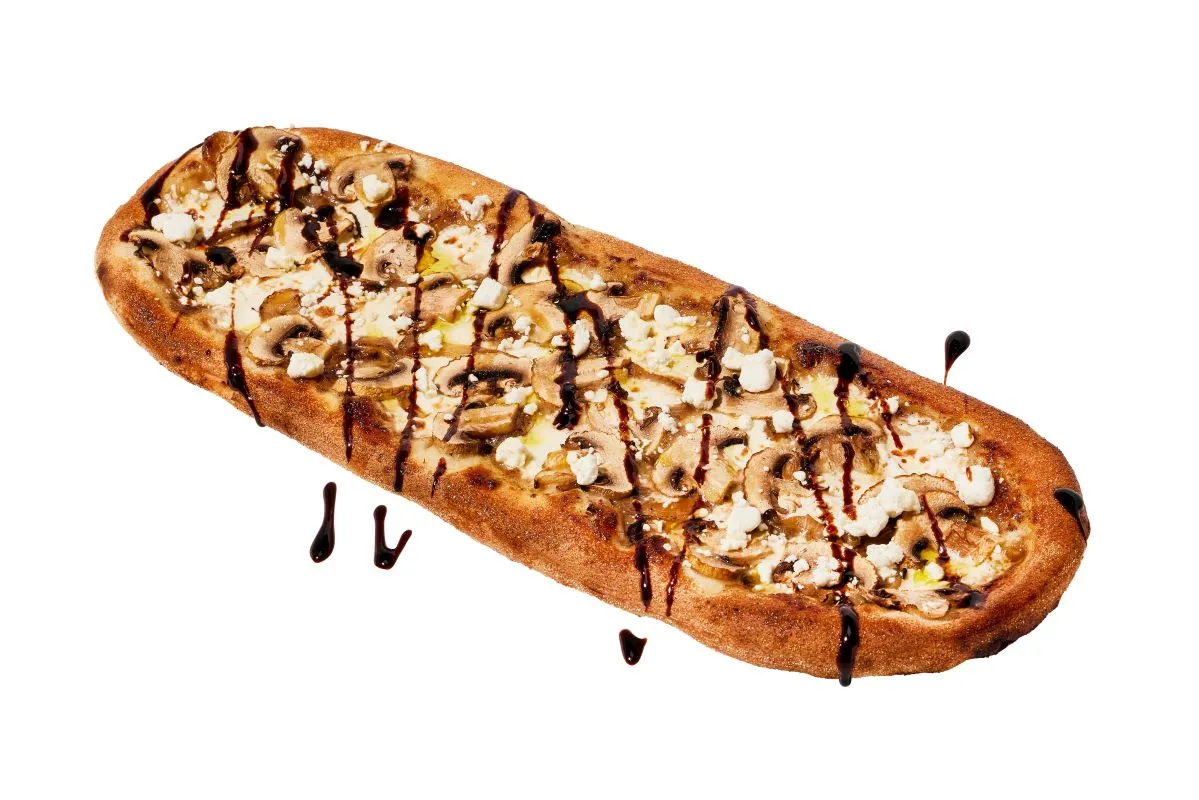
What trends concern you that people aren’t talking about?
I think what people are not talking about is actually communicating to your guests face-to-face in the restaurant. We’re gonna add kiosks, but we’re not taking away that cashier. We’re just doing it for throughput.
But I think people stop talking about the interaction between the front-facing team and the guest. I think that’s so important. When you walk into our restaurants, you’ll see it’s a fun environment. It’s not like any other pizza place or any other fast-casual restaurant. The music’s so loud, you almost have to yell over to talk to the guests. And we want it that way.
We’ve already started in-house training on how to talk to the customer and we’re building all that in our employee training platforms. So we use Opus, and part of that we’re building a platform that helps all of our guest engagement.
If the customer has a problem, identify it. When they walk in the door, say hi. When they leave, say goodbye. When the customer walks in to when the customer leaves, we’re helping the cashiers and management identify those points, and actually speak to the guests. We’re going to teach them that in their online learning as they are onboarding.
How are you thinking through your franchising strategy?
We want franchisees that are going to buy into our system. They have to be able to have the music turned up loud in the restaurant. They have to do all these things that make &pizza &pizza.
We’re still going to have a large chunk of company restaurants. We’re not asking them to do anything that we wouldn’t do as well. We’re not going to go into heavy discounting and make their transactions less profitable. We want every transaction that comes to their door to be a profitable one. We feel like the more money that they make, they’ll grow faster, which helps us grow faster.
We will be heavily hands-on. We’re starting from a baseline of zero. We can build franchisees models where we’re going to help track their P&L. We’re gonna be heavily involved in their day-to-day business from how to run your food cost, how to manage labor, how you build your schedule.
In each market, we will partner franchisees with each other so they can help bounce ideas off each other. We’re going to run this as a big family unit.



